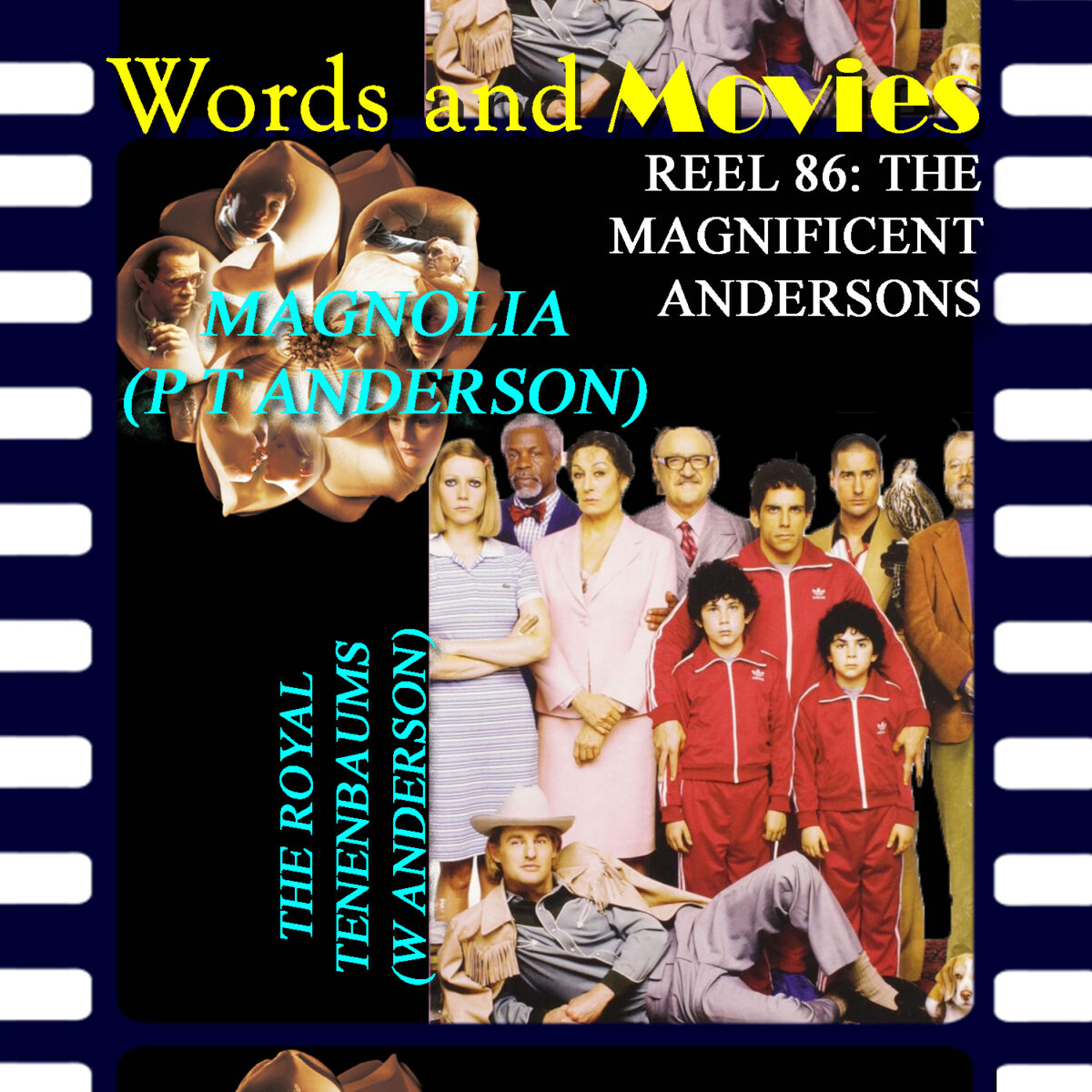And this, children, is what happens when you don’t hit the “Publish” button. Enormous apologies and thanks for your patience. I’ll make up for it by publishing another episode tonight, since that was the plan anyway.
While I’m at it, I also apologize for the cover art. I couldn’t come up with anything good.
This episode looks at a pair of films by two (unrelated) directors whose last name is Anderson.
We open up with MAGNOLIA (1999), directed by Paul Thomas Anderson. This is a story that doesn’t so much have a plot as it has several plots, each bumping into one another from time to time (think of Altman’s SHORT CUTS, which we talked about back in Episode 34). It’s a fun ride, even if you sit there wondering what one thing has to do with the other. And the answer is: sometimes, not much. But P.T. Anderson sets you up for that early in the film, so you have nothing to complain about. And it’s a long film, so we have a lot to talk about, so don’t complain about that either.
In Part Two we move on to Wes Anderson and his 2001 film THE ROYAL TENENBAUMS, starring Gene Hackman (RIP), Anjelica Huston and a small company of actors as their children and other relatives. The family is in bad shape, until a lie brings them all together. Then it splits them up. Then…well, we presume that if you’re reading this you already knows what happens. But if you haven’t, what are you waiting for? Go see it! Come back and let us know what you thought!
COMING ATTRACTIONS:
In Episode 87 we’re keeping our focus (heh) on directors, with two films that are semi-autobiographical in nature. We’ll begin with MEAN STREETS (1973), directed by Martin Scorsese, and finish with DINER (1982), directed by Barry Levenson. Join us, won’t you?



